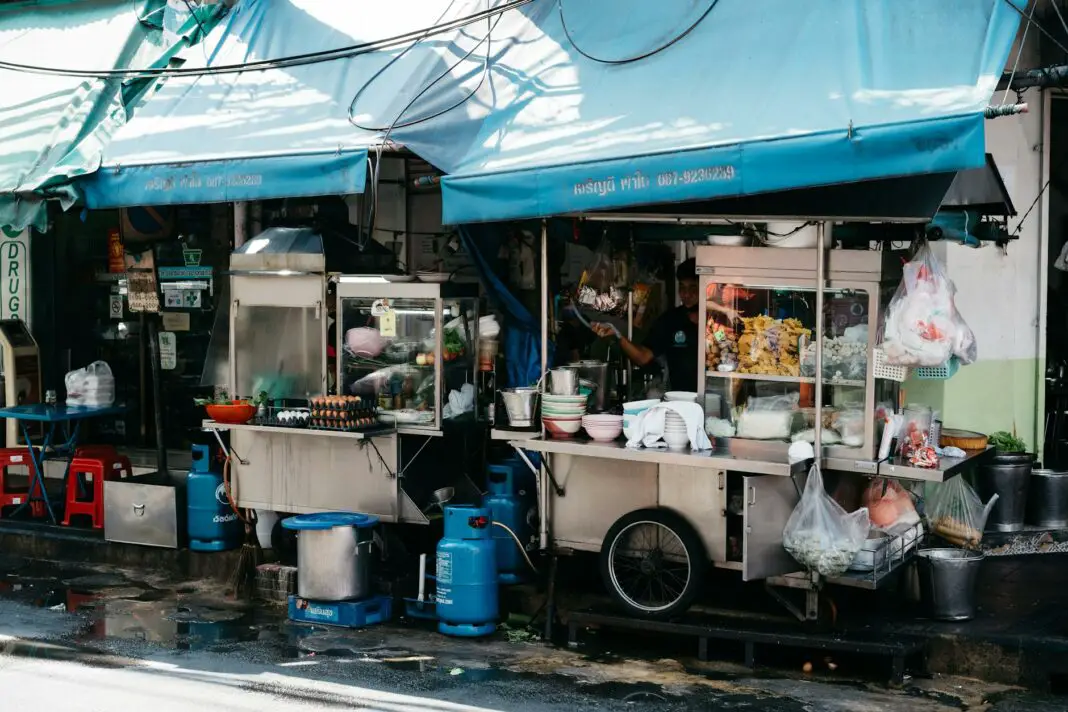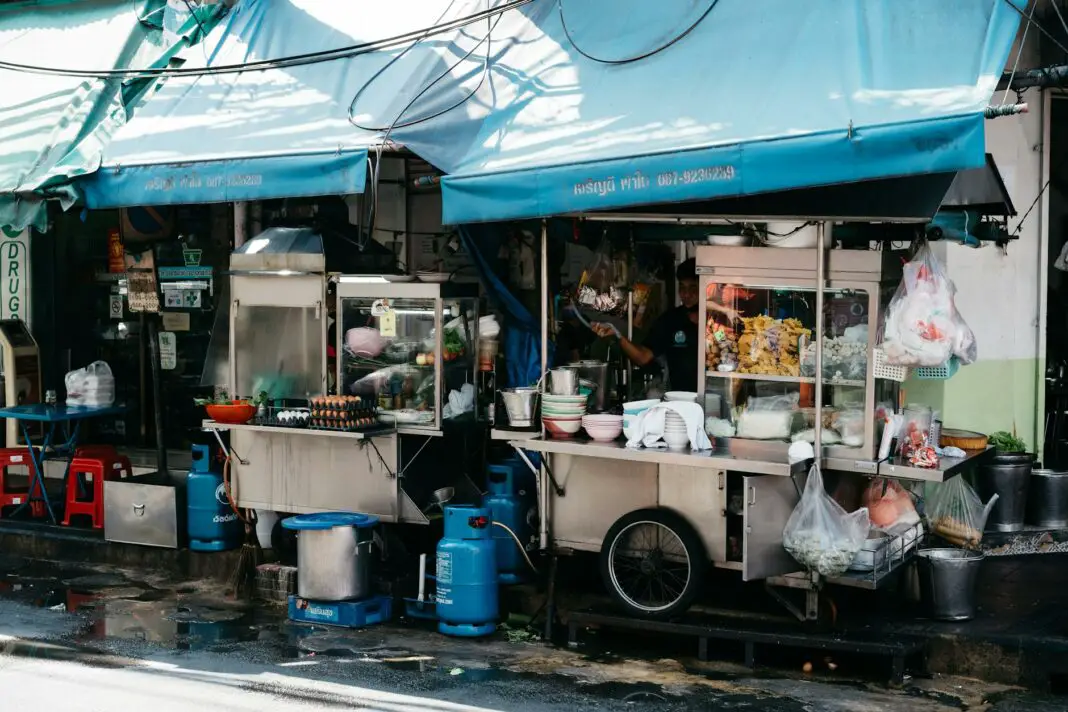Welcome to Your Journey to Thailand: The Eco-Tourism Paradise
Discovering Thailand can ignite a love for eco-tourism that you may not have realized you had. As you venture into this Southeast Asian gem, each step reveals a rich tapestry of nature, culture, and sustainable practices that create a harmonious balance sometimes hard to find in our rapidly changing world. This blog post takes you on an exhilarating exploration of Thailand as the ultimate eco-tourism destination. Get ready to dive deep into its breathtaking landscapes, vibrant traditions, and the meaningful connections you can foster through responsible travel.
Imagine yourself wandering through lush jungles, swimming in crystal-clear waters, and engaging with locals committed to preserving their environment. Thailand, with its myriad of eco-friendly initiatives and sustainable tourism practices, is beckoning travelers to experience its pristine beauty while treading lightly. By choosing eco-tourism in Thailand, you can immerse yourself in unique experiences that not only enrich your journey but also support the communities and ecosystems that make this destination so enchanting.
Table of Contents
- Understanding Eco-Tourism in Thailand
- Top Eco-Friendly Destinations in Thailand
- Exciting Eco-Tourism Activities
- The Value of Cultural Exchange
- Sustainability Efforts and Community Impact
- Travel Tips for Eco-Tourism
- Embracing Eco-Tourism: Your Next Steps
Understanding Eco-Tourism in Thailand
Eco-tourism in Thailand is not merely a trend; it is a way of life and an integral part of the country’s approach to tourism. It focuses on fostering a sustainable relationship between visitors and the environment, ensuring that the natural beauty and cultural heritage remain intact for future generations. By prioritizing low-impact travel options and participating in conservation efforts, tourists can experience Thailand’s diverse ecosystems while leaving minimal footprints.
This eco-friendly philosophy extends beyond just the nature enthusiasts. Travelers can engage in activities that promote wildlife conservation, participate in community workshops, and learn about traditional practices that enrich local lifestyles. In essence, eco-tourism in Thailand invites you to become a part of the ecosystem, learning from its inhabitants and contributing to their sustainability initiatives. With so many options available, eco-tourism offers not just adventure but a deeper understanding of the global and environmental challenges we face today.
Top Eco-Friendly Destinations in Thailand
Thailand boasts a variety of eco-friendly destinations widely recognized for their extraordinary commitment to sustainable travel. From the stunning islands of Koh Tao and Koh Phi Phi to the vibrant national parks like Khao Sok and Doi Inthanon, each location offers unique experiences that invite exploration while respecting nature.
Koh Tao, famed for its clear waters and vibrant marine life, stands as a beacon of marine conservation. Here, dive operators emphasize eco-friendly practices, ensuring that visitors contribute to the preservation of coral reefs rather than their degradation. Alternatively, Khao Sok National Park offers opportunities to experience ancient rainforests, where eco-lodges provide visitors with rustic charm while minimizing environmental impacts. Natural wonders combined with conscious travel make these destinations essential stops for anyone serious about eco-tourism in Thailand.
Exciting Eco-Tourism Activities
When you think of eco-tourism activities in Thailand, a plethora of options awaits. Consider trekking through lush jungles where expert local guides illuminate the rich biodiversity that thrives here. Bird watching can be a meditative experience for those with a penchant for nature, particularly in locations like Khao Yai National Park, where hundreds of species sing their morning songs.
Participating in traditional crafting workshops or cooking classes can connect you to the local culture while promoting sustainability. Learning indigenous farming techniques not only supports local communities but also offers practical insights into biodiversity and agricultural practices. Whether joining a community wildlife rescue initiative or volunteering on a farm, each activity enhances your travel experience and helps the sacred landscapes of Thailand endure.
The Value of Cultural Exchange
Cultural exchange is an integral component of eco-tourism, fostering mutual understanding between travelers and local communities. Your experiences will be enriched through authentic interactions with the Thai people, whose customs and traditions can inspire a greater appreciation for diverse cultures. Rather than existing as mere tourists, you become active participants in the narrative of the people and places around you.
Seeking out homestays or community-run lodges can provide an immersive glimpse into daily life while supporting local economies. These experiences challenge the conventional tourist approach by creating space for genuine dialogues and shared experiences. It’s through understanding the intricacies of Thai culture and its harmonization with nature that travelers can forge lasting connections. Such engagements develop not only respect for the local ways but also inspire a commitment to the principles of sustainability.
Sustainability Efforts and Community Impact
In Thailand, numerous initiatives work to bolster sustainability, from conservation programs for elephants to projects aimed at reducing plastic waste on the islands. Community-led organizations have sprung up across the country, empowering residents to protect their environment while leveraging their resources intelligently. By voluntarily participating in these initiatives, travelers can witness firsthand the positive impacts sustainable practices have on both the land and its people.
One remarkable success story comes from the Elephant Nature Park, where ethical tourism and wildlife conservation meet. This sanctuary rescues elephants from various hardships, allowing them to live freely in a natural environment. Visiting such places not only propels the mission of animal welfare but also generates funds vital for the ongoing preservation efforts. Supporting these projects amplifies your eco-tourism impact while fostering a sense of responsibility for the environment.
Travel Tips for Eco-Tourism
To maximize your eco-tourism experience in Thailand, certain tips can be invaluable. Begin by choosing eco-friendly accommodations that prioritize sustainability in operations, from solar energy to waste reduction practices. Research local laws and customs to minimize your impact and show respect for the environment and community leaders’ efforts.
Pack light and embrace the local culture; consider using reusable containers and eco-friendly toiletries to minimize waste. Engaging with local guides who share your passion for sustainability can provide deeper insights while enhancing the authenticity of your journey. Lastly, always strive to leave a location better than you found it, ensuring that the pristine beauty of Thailand remains for generations to come.
Embracing Eco-Tourism: Your Next Adventure Awaits
As you stand at the threshold of your adventure, remember that choosing eco-tourism in Thailand means stepping into an extraordinary world of natural beauty and cultural richness. You can become a steward of the environment, contributing positively to the places you visit. Every moment spent exploring lush jungles or interacting with local communities can create lasting memories and impactful changes. Embrace the challenge to tread lightly, making a difference with each step you take through this eco-tourism paradise.
FAQ
What is eco-tourism?
Eco-tourism emphasizes responsible travel that conserves the environment and improves the well-being of local communities. It promotes awareness of natural surroundings and wildlife conservation while minimizing visitors’ impact.
How can I travel sustainably in Thailand?
Opt for eco-friendly accommodations, support local businesses, engage in conservation projects, and adhere to low-impact travel practices to travel sustainably in Thailand.
What are the best eco-tourism activities in Thailand?
Some activities include jungle trekking, wildlife conservation volunteering, participating in traditional workshops, and snorkeling or diving at marine conservation areas.
Why is cultural exchange important in eco-tourism?
Cultural exchange fosters understanding, respect, and connections between travelers and local communities, enriching the travel experience and promoting sustainable practices.
Which places in Thailand prioritize eco-tourism?
Destinations like Koh Tao, Doi Inthanon, Khao Sok National Park, and Chiang Mai are renowned for their commitment to eco-tourism and sustainable practices.
Image Credit: Pexels





